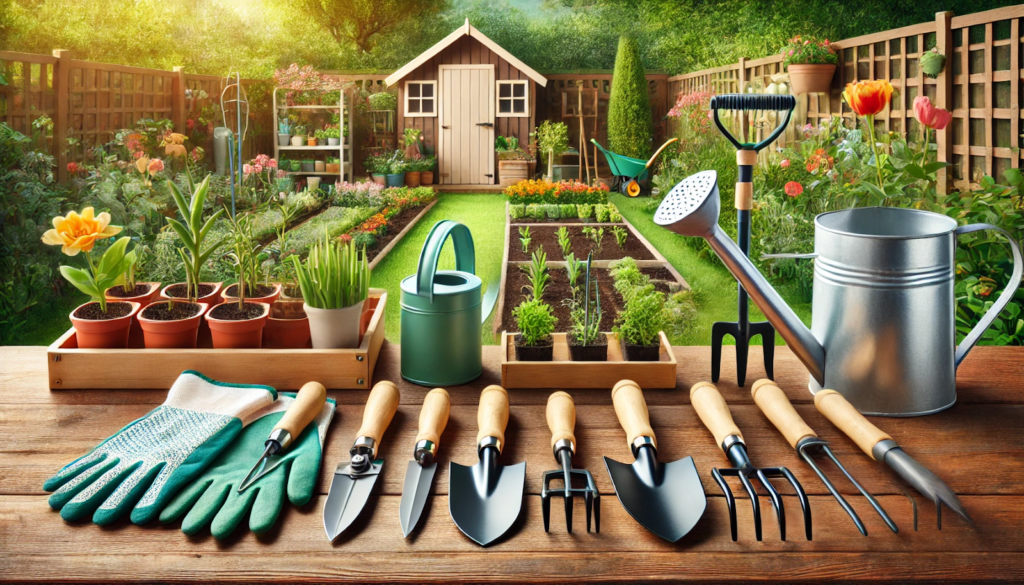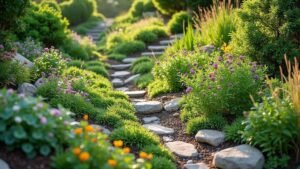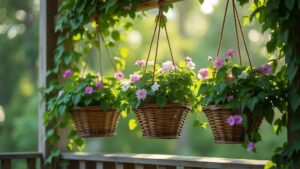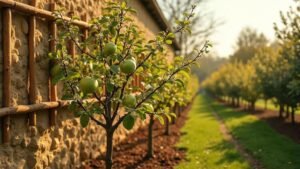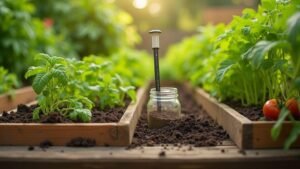Starting a home garden can be exciting, but having the right tools makes the experience smoother, more efficient, and more enjoyable. While it’s easy to be overwhelmed by the range of gardening tools available, beginners only need a few essentials to get started. This guide outlines the must-have tools for novice gardeners and how to use each one effectively.
Hand Trowel
A hand trowel is a small, handheld tool that looks like a mini shovel. It’s essential for planting, transplanting, and digging small holes.
Why You Need It:
- Ideal for planting seeds and seedlings
- Helps with removing weeds
- Great for working in tight spaces
What to Look For:
- A comfortable, ergonomic grip
- A sturdy, rust-resistant metal blade
Pruning Shears (Secateurs)
Pruning shears are used to cut back plants, remove dead or damaged stems, and encourage healthy growth.
Why You Need It:
- Keeps plants well-shaped and healthy
- Helps control the size of shrubs and perennials
- Useful for harvesting herbs or vegetables
What to Look For:
- Sharp blades that don’t rust
- A locking mechanism for safety
- Spring-loaded handles for ease of use
Garden Gloves
Gardening without gloves can lead to blisters, cuts, and skin irritation from soil or certain plants. A good pair of gloves protects your hands while still allowing dexterity.
Why You Need It:
- Protects against thorns, insects, and dirt
- Prevents splinters and blisters
- Offers grip when handling tools or plants
What to Look For:
- Durable, breathable material
- A snug fit for full control
- Water resistance if possible
Watering Can or Hose with Nozzle
Consistent watering is key to healthy plants. Depending on the size of your garden, you’ll need either a watering can or a hose with an adjustable nozzle.
Why You Need It:
- Ensures even, gentle watering
- Helps reach plants in containers or tight spots
- Essential during dry periods
What to Look For:
- A watering can with a removable rose head
- A hose with different spray settings
- Durable, kink-resistant materials
Garden Fork
A garden fork is ideal for loosening compacted soil, turning compost, and incorporating organic matter into your beds.
Why You Need It:
- Improves soil aeration
- Makes digging and turning soil easier
- Helps mix soil amendments
What to Look For:
- Strong metal tines
- A long or short handle depending on your garden size
- Comfortable grip
Spade or Shovel
A spade is perfect for digging larger holes, edging beds, and moving soil or compost.
Why You Need It:
- Versatile for all types of digging tasks
- Useful for dividing perennials
- Essential for creating new garden beds
What to Look For:
- A sharp, flat blade for cutting through soil
- A strong handle with good leverage
- A footrest edge for easier digging
Rake
A rake helps clean up garden debris, smooth out soil, and level mulch or compost.
Why You Need It:
- Clears leaves, weeds, and rocks
- Prepares seedbeds for planting
- Maintains tidy, even garden beds
What to Look For:
- A wide head with flexible tines for leaves
- A stiff rake for soil and mulch work
- Lightweight for easy handling
Garden Hoe
For larger plots or raised beds, a garden hoe makes it easier to weed, shape rows, and break up tough soil.
Why You Need It:
- Quick weed removal
- Prepares rows for seeds
- Helps mix in fertilizers
What to Look For:
- A sturdy, sharp blade
- Comfortable handle height
- Right shape for your tasks (flat, loop, or stirrup hoe)
Wheelbarrow or Garden Cart (Optional for Larger Gardens)
For gardeners with more space or multiple beds, a wheelbarrow helps move soil, compost, mulch, or tools efficiently.
Why You Might Need It:
- Saves time and energy during big jobs
- Makes heavy lifting easier
- Ideal for transporting garden waste
What to Look For:
- Lightweight yet durable design
- Stable wheels (consider two-wheeled models for balance)
- Rust-resistant materials
Tool Storage and Maintenance
Caring for your tools is just as important as owning them. After each use:
- Rinse off soil and dry thoroughly
- Store in a dry, sheltered area
- Oil metal parts occasionally to prevent rust
Proper care extends the life of your tools and keeps them ready for use when you need them.
Keep It Simple: Start with the Basics
As a beginner, you don’t need to buy every tool at once. Start with the core essentials—trowel, gloves, pruners, watering can, and a spade. As your garden grows and your skills develop, you can expand your toolkit based on your specific needs. Investing in quality tools early on will make gardening easier, more productive, and more enjoyable.

